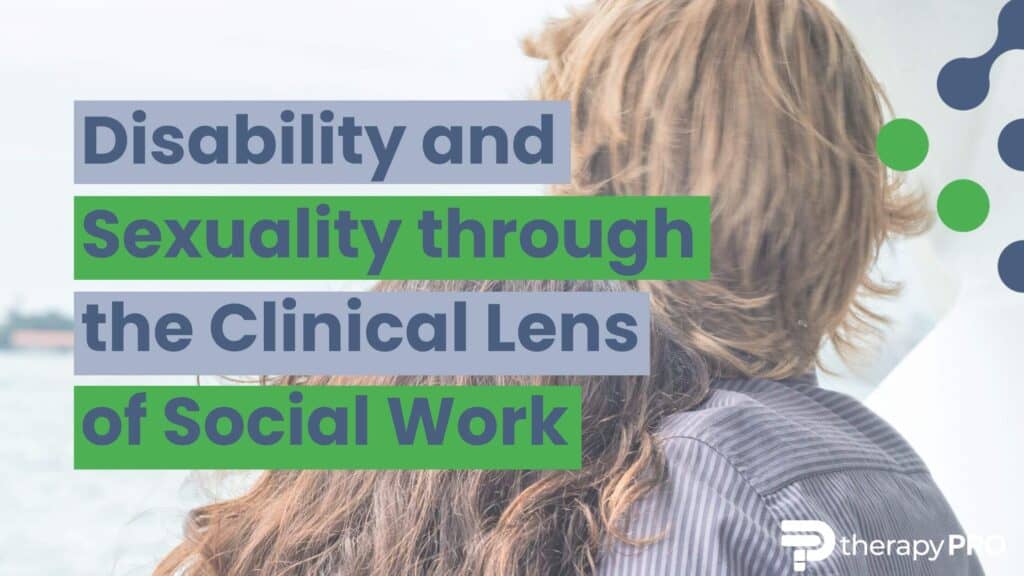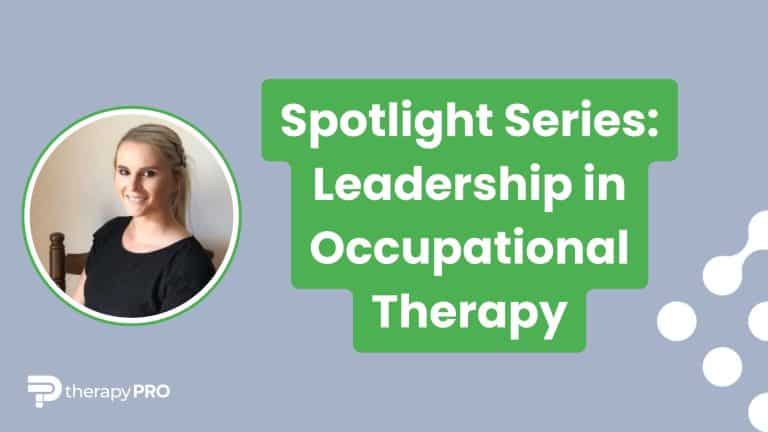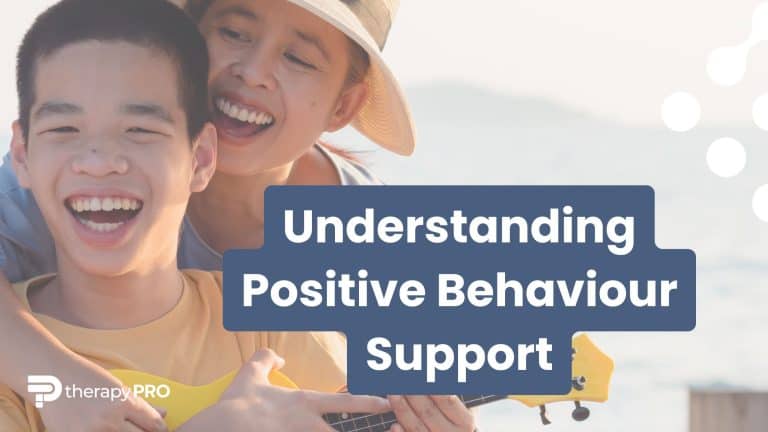Disability and Sexuality: A Client Story
In this client* story about disability and sexuality we hear from Melbourne South East Therapy Pro Social Worker, Jan, as she gives insight into one of the clinical lenses of social work that she provides and its function in a wider multidisciplinary team (MDT).
Jan’s Background and Experience
Jan works with families on behaviour supports and navigating relationships, including Positive Behaviour Support Plans. She has a special interest and experience in working with clients in the areas of sexuality, trauma, grief and loss, mental health, and developing social skills.
Disability and sexuality is an area of interest for Jan. Developing positive sexuality, often within the context of respectful relationships, is one of the roles she takes on as a social worker. Consent, online safety, decision-making, safe sex, contraception, private and public space for expressing sexuality, communication, and conversations are some topics that Jan explores with her clients.
About Disability and Sexuality
Jan has the privilege of being a part of the professional team that has allowed Amy and Luke, two 60-year-old clients, to express their love and commitment to each other. Amy has an intellectual disability and communication difficulties, whilst Luke has an intellectual disability resulting from an acquired brain injury.
Intellectual disability can be defined as a significantly reduced ability to understand new or complex information, learn new skills and cope independently.
People with a cognitive disability (including intellectual disability, Autism Spectrum Disorder and an acquired brain injury) experience the same range of sexual thoughts, attitudes, feelings, desires, fantasies and activities as anyone else. Those with intellectual disabilities have a right to express their sexuality in satisfying ways.
In the past, sex for people with disability has been a taboo subject and rarely discussed openly; this is slowly changing. The attitudes and support of other people are essential in helping people of all abilities to have healthy personal and sexual relationships.
In spite of Amy’s challenges with communication, she and Luke speak each night on the telephone at 6pm. Each Friday night Luke travels a long distance by public transport to have dinner with Amy at her home.
Collaborating to Support Amy and Luke
Amy and Luke, who live in separate supported accommodations, met by chance more than two years ago. In Jan’s role as Amy’s social worker, she met with Amy to fully understand her expectations, goals and choices – which included wanting to have private intimate times with Luke, her boyfriend.
NDIS supports for both Amy and Luke, including family, support coordinators, occupational therapists, staff at both their homes and Jan, worked together and overcame barriers to achieve their goal. Time was spent with both Amy and Luke to prepare them, answer questions and provide support and information. On Amy’s birthday, in December last year, they shared a romantic dinner and their first night together in a motel of their choice.
Amy now has a bedroom that accommodates a double bed for Luke to stay overnight each Friday after they spend an evening having dinner and dancing at the disco. Jan continues to assist Amy and Luke in their relationship and intimacy. One of Amy’s new goals is to live in supported accommodation with Luke in the future.
Jan reflects on her role as a social worker within Amy’s MDT, stating it is an honor for her to be a part of such a beautiful love story.
*Client details have been de-identified
More About Therapy Pro Social Work Services
Head to our Social Work services page for more information on how our Therapy Pro social workers support individuals, families and communities.
View Jan’s profile for a look at her areas of experience and service locations or contact us directly below with any questions:




